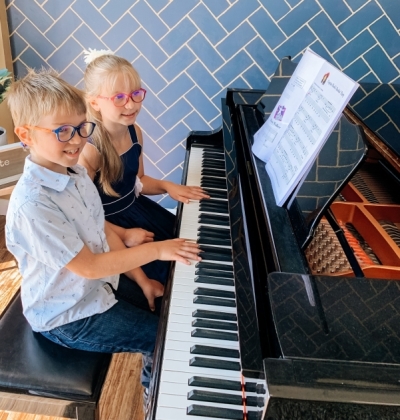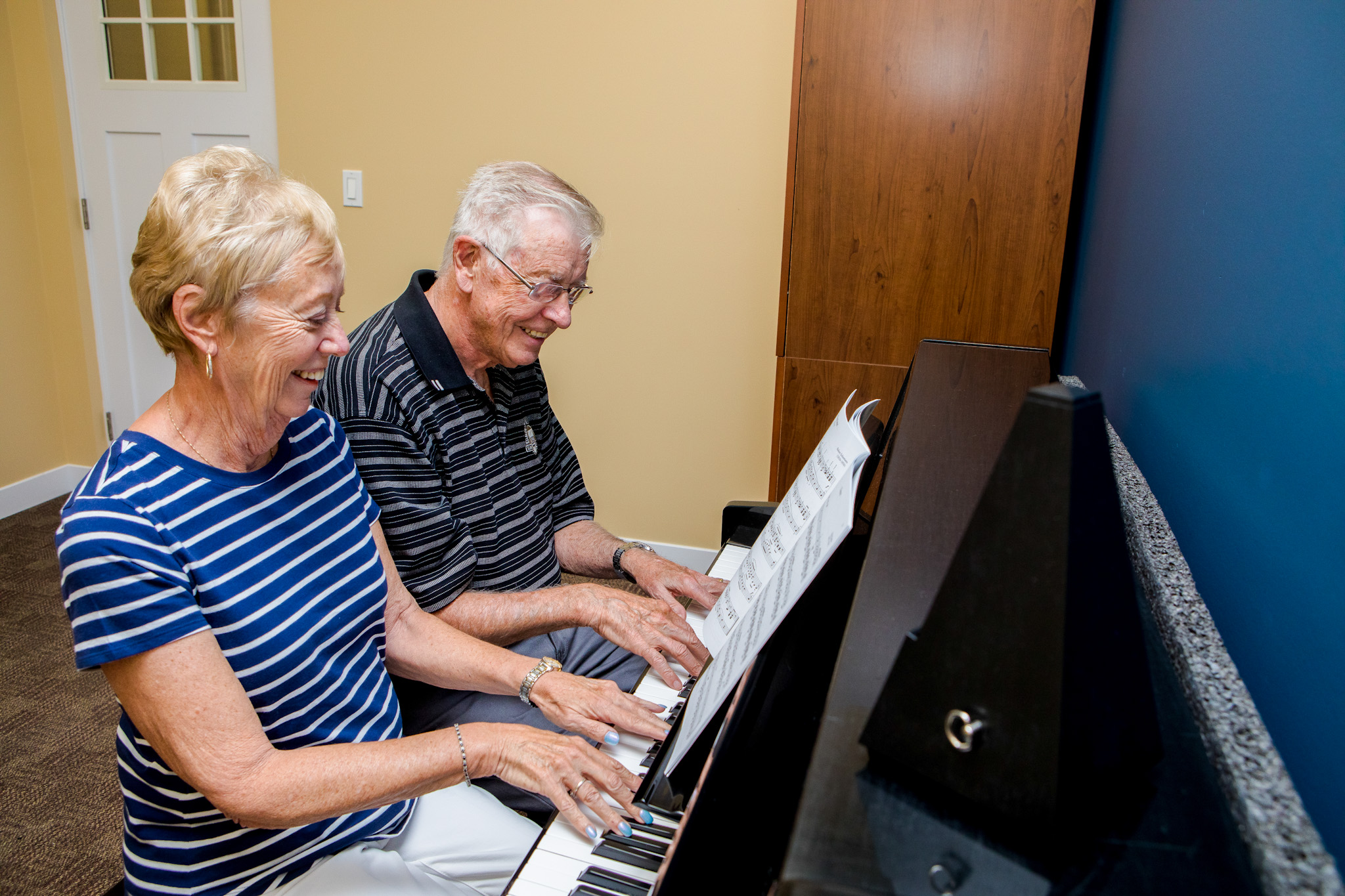
The piano, with its array of keys and expressive range, has long been a symbol of musical artistry and sophistication. Practicing the piano is more than just a pathway to mastering an instrument; it is a journey that will enrich the mind and the soul. This article explores the incredible value of practicing piano, highlighting its impact on brain development/cognitive skills, emotional well-being, and overall quality of life!
Cognitive Development and Intellectual Growth
Learning to read sheet music, understanding rhythm, and coordinating hand movements requires and develops a range of mental skills. Research has shown that regular piano practice can improve memory, attention, and problem-solving abilities. Musicians often exhibit heightened reasoning skills, which are particularly critical in the areas of mathematics and engineering. The challenge of mastering different musical pieces also fosters perseverance and patience, traits that are beneficial in numerous “life settings”!
Emotional and Psychological Benefits
The piano serves as an emotional outlet, providing an avenue for self-expression and also stress relief. The act of playing music can be deeply therapeutic, allowing individuals to process and express emotions that might be difficult to articulate through words. The focus required during piano practice can also be a valuable “self-centering” technique, helping to reduce anxiety and even promote relaxation. Many pianists find that their mood improves after a session at the keyboard. The act of creating music can be both uplifting and calming.
Discipline and Time Management
Regular piano practice requires a significant commitment of time and effort, teaching valuable lessons in work ethic and time management. Setting and achieving practice goals can certainly cultivate a strong work ethic, which will often translate to other areas of life. The progress made in learning a new piece or technique reinforces the importance of persistence and dedication. These skills are not only applicable to musical endeavors but also to personal and professional life challenges.
Social and Cultural Enrichment

Piano playing can open a door to a rich tapestry of cultural and social experiences. Through music, individuals can connect with a diverse array of traditions and historical perspectives, gaining a deeper appreciation for different cultures and eras. Participating in piano lessons, recitals, or ensemble performances fosters social interaction and collaboration, building a sense of community among musicians. For many, the shared experience of music serves as a bridge to forming lasting relationships and finding common ground and bonds with others.
Creative Expression and Personal Fulfillment
One of the most rewarding aspects of piano practice is the opportunity for creative expression. The piano offers an expansive canvas for exploring one’s musical imagination and developing a unique artistic voice. Whether playing classical compositions, improvising, or composing original works, the piano allows individuals to channel their creativity and find personal fulfillment. The joy of bringing a piece of music to life and the satisfaction of achieving new milestones contribute to a profound sense of accomplishment.
Lifelong Benefits and Enjoyment
The skills and experiences gained through piano practice have enduring value throughout life. Many individuals who learned to play the piano in their youth continue to find joy and fulfillment in playing well into adulthood. The piano can be a lifelong companion, providing a source of comfort and pleasure across different stages of life. As a versatile and enduring instrument, the piano offers opportunities for continual growth and exploration, ensuring that the rewards of practicing extend well beyond the initial learning phase.
Conclusion
The value of practicing piano extends far beyond the ability to perform music. It encompasses cognitive enhancement, emotional well-being, personal discipline, cultural enrichment, and creative expression. Each practice session not only hones technical skills but also contributes to a more enriched and balanced life. Whether one’s goal is to become a virtuoso or simply to enjoy the beauty of music, the journey through piano practice offers a wealth of benefits that can enhance every aspect of one’s existence.